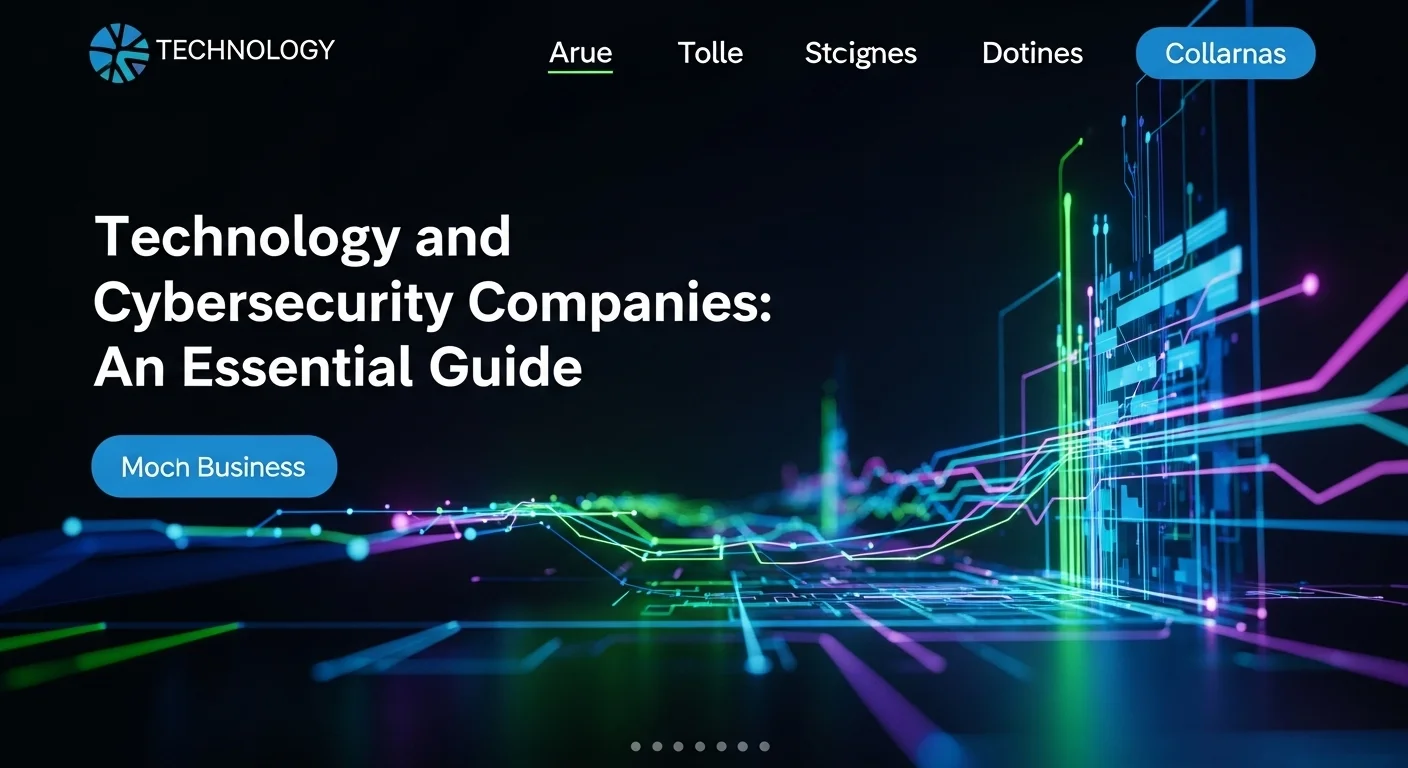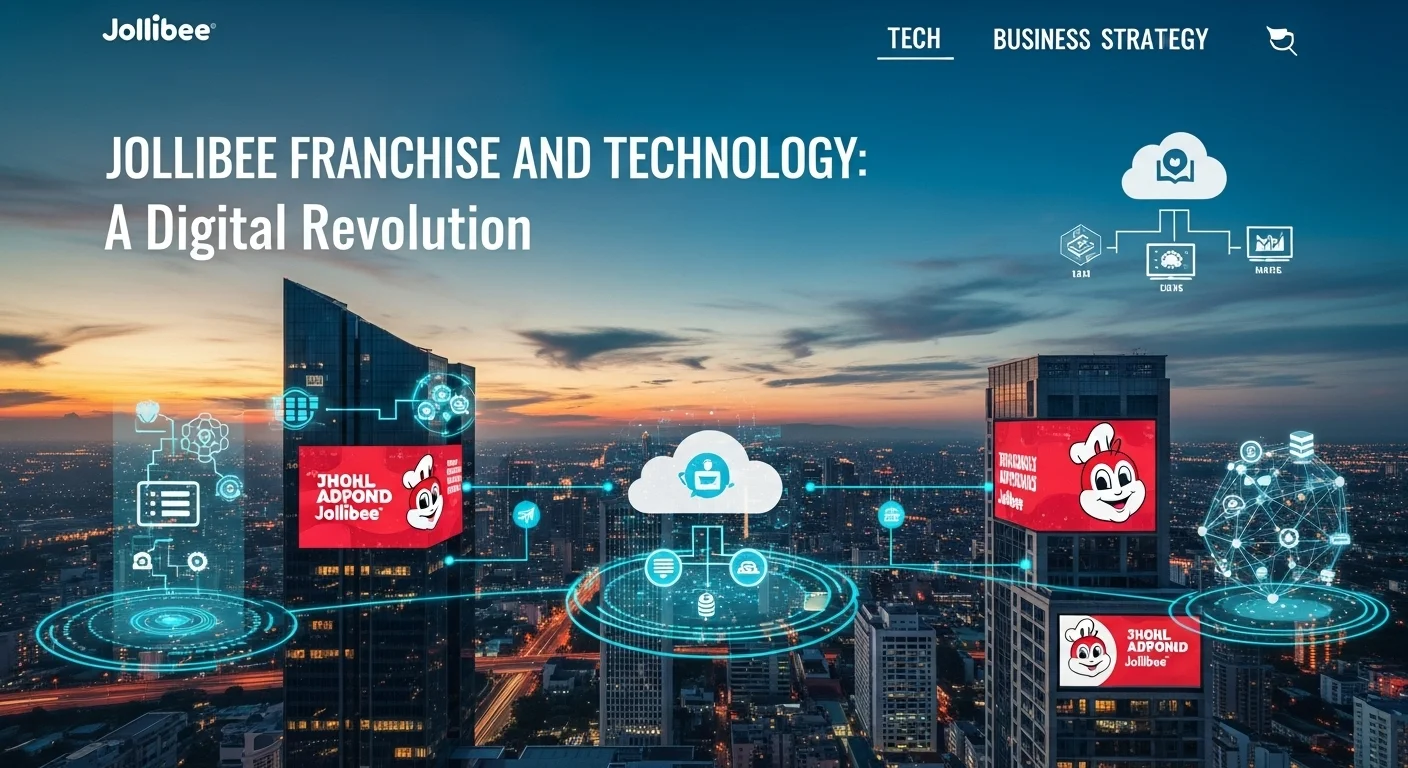A Veteran's Guide to Cybersecurity Companies: Finding Your Digital Bodyguard

Executive Summary
After two decades in the trenches of digital defense, I've seen countless businesses either thrive or crumble based on one thing: their approach to cybersecurity. It’s no longer a concern just for massive corporations; it's a fundamental necessity for everyone. In this guide, I'm cutting through the technical jargon to give you a real-world look at the different types of cybersecurity partners out there. My goal is to demystify the industry, from cloud-based subscriptions and strategic consultants to the specialists who protect our critical infrastructure. I'll share what I've learned to help you understand who does what, so you can make smart decisions and build a digital fortress that truly protects your operations.
Table of Contents
Table of Contents
What are Cybersecurity Companies and why are they so important in Technology?
In a world where nearly every transaction, communication, and idea lives online, the need for digital protection is absolute. Think of cybersecurity companies as the specialized security forces of the digital realm. They are organizations dedicated to one primary goal: protecting computer systems, networks, and precious data from hackers, thieves, and accidental damage. For years, I've seen these firms act as the guardians that allow businesses to innovate and individuals to connect with confidence. Their work ranges from building digital walls (firewalls) to hunting for hidden threats and ensuring that when you need your information, it's actually there. As cyber threats have evolved from simple viruses to sophisticated ransomware attacks and state-sponsored espionage, the expertise of these companies has shifted from a 'nice-to-have' to an essential pillar of modern business.
The Core Mission: Managing Digital Risk
At its heart, the job of any good cybersecurity firm is to manage and reduce cyber risk. From my experience, it all boils down to what we call the 'CIA Triad': Confidentiality, Integrity, and Availability. Confidentiality means keeping secrets safe, ensuring only the right people see sensitive data. Integrity is about trust, making sure your data hasn't been secretly altered. And Availability means your systems are up and running when you need them. To deliver on this, these companies use a layered defense strategy. They don't just put up one wall; they build a fortress with monitoring systems, encryption, access controls, and constant vigilance. The modern approach I always recommend is proactive, not reactive. You have to assume you'll face a threat eventually and be prepared to spot it fast and shut it down effectively.
The Diverse World of Cybersecurity Specialists
The cybersecurity field isn't a one-size-fits-all industry. It’s a rich ecosystem of specialists, because a threat to a hospital's patient records is vastly different from one targeting a nation's power grid. Understanding these specializations is key to finding the right help.
A huge and growing area is cloud-based security subscriptions (SaaS). Instead of buying and managing clunky hardware, businesses can subscribe to powerful security services delivered online. This model is a game-changer for its flexibility and affordability, especially for companies without a huge IT department. Providers like Zscaler and CrowdStrike are leaders here, offering everything from endpoint protection on laptops to securing your connection to cloud apps, which is crucial in our work-from-anywhere world.
On the other side of the coin are cybersecurity consulting firms. These companies sell expertise, not just products. Think of them as the strategic advisors you hire to design your security blueprint. Firms like Optiv or GuidePoint Security don't just sell you a box; they assess your unique risks and help you build a comprehensive security program, navigate complex regulations like GDPR or HIPAA, and even run ethical hacking exercises (pen tests) to find your weak spots before the bad guys do.
A fascinating and vital niche belongs to Operational Technology (OT) security specialists. These experts protect the systems that control our physical world—think manufacturing plants, water treatment facilities, and power grids. An attack here could have catastrophic real-world consequences. Companies like Dragos and Nozomi Networks are masters in this domain, using specialized tools that can monitor industrial networks without disrupting fragile processes. They understand that the security needs of a factory are worlds apart from those of a corporate office.
With everyone moving to the cloud, a new breed of cloud security companies has emerged. They tackle the unique challenges of platforms like AWS, Azure, and GCP, where a simple misconfiguration can expose massive amounts of data. Companies such as Wiz and Orca Security give you a bird's-eye view of your entire cloud environment, helping you spot risks like exposed data or vulnerable applications. They are essential for any business that wants to innovate in the cloud without taking on unacceptable risk.
Finally, we have Cybersecurity as a Service (CSaaS), which bundles technology and human expertise into a single subscription. It’s like having an elite, outsourced security team on call 24/7. This is an incredible option for small and medium-sized businesses that can't afford their own Security Operations Center (SOC). A CSaaS partner monitors your network around the clock, hunts for threats, and responds to incidents, letting you focus on running your business.
Why This Matters for Your Business and Tech Enthusiasts
For any business leader, knowing these distinctions is critical for making smart investments. You wouldn't hire a plumber to do electrical work. Similarly, a manufacturing firm needs an OT security expert, while a tech startup will lean heavily on cloud and SaaS security providers. For those of us who are passionate about technology, this field is where some of the most exciting innovation is happening. The constant battle between attackers and defenders is fueling incredible advancements in AI-driven threat detection and next-generation encryption. These companies aren't just vendors; they are essential partners in building a trusted and secure digital future for all of us.

Your Complete Guide to Cybersecurity Partners and Business Solutions
Diving into the cybersecurity market can feel like learning a new language. But once you understand the different players and what they offer, you can find the perfect partner to protect your business. Each type of company brings a unique approach, business model, and set of tools to the table. This guide will walk you through the main categories, what they do, and who they're best for. My goal is to give you the confidence to choose the right partner and transform your defenses from a source of anxiety into a strategic advantage.
Breaking Down the Cybersecurity Company Models
The first step is to understand the primary ways security services are sold and delivered. Let's look at the dominant models: SaaS, consulting, OT-specific, cloud-native, and the all-in-one 'as-a-Service' model.
1. SaaS Security Providers: Scalable, Cloud-Powered Defense
I've seen SaaS revolutionize security for businesses of all sizes. These companies deliver security tools over the internet through a subscription, eliminating the need for costly on-site hardware. It's security that's always on and always up-to-date.
How They Work: They use the power of the cloud to deliver services like endpoint detection and response (EDR) to monitor devices for suspicious activity, or cloud access security brokers (CASB) to enforce policies on apps like Office 365 or Salesforce. Many leaders in this space, like SentinelOne, use smart AI to sift through mountains of data and spot threats that a human might miss.
Business Value: The SaaS model offers enterprise-level security that's easy to roll out, especially for teams working remotely. It turns a large one-time cost into a predictable monthly expense. It's a fantastic way to get powerful protection without needing a dedicated team to manage it.
Who is it for? Businesses of any size, especially those with remote workers, a lot of cloud app usage, or limited IT staff to manage on-premise hardware.
2. Cybersecurity Consulting Firms: Your Strategic Architects
Consultants are the seasoned strategists you bring in when you need a plan. They don't sell a product; their product is wisdom, expertise, and a tailored roadmap for your security.
How They Work: A consultant's toolkit is methodological. They conduct deep-dive risk assessments, perform ethical hacking (penetration testing) to find vulnerabilities, and help you design secure systems from scratch. I've often brought them in to run tabletop exercises, which are like fire drills for a cyberattack, to see how the team responds under pressure.
Business Value: Consultants are invaluable for tackling big-picture challenges. Need to comply with a complex regulation like HIPAA? They'll guide you. Need high-level security leadership but can't afford a full-time CISO? They offer 'virtual CISO' services. They ensure your security spending is directly tied to your biggest business risks.
Who is it for? Organizations that need to build a security program from the ground up, face complex compliance demands, or require an independent, expert assessment of their defenses.
3. OT Security Specialists: Guardians of Critical Infrastructure
This is a highly specialized field focused on protecting the technology that controls our physical world. As industrial systems have become more connected to IT networks, they've become targets, and the stakes are incredibly high.
How They Work: These experts use techniques that won't disrupt sensitive industrial operations. A key method is passive monitoring, where they 'listen' to network traffic to identify all connected devices and spot unusual behavior without interfering. Their tools are designed to understand the unique languages (protocols) of industrial machinery.
Business Value: The goal here is operational resilience. By partnering with a firm like Dragos, a factory can prevent a cyberattack that could cause millions in downtime or, worse, a safety incident. They help critical industries like energy and water stay secure and compliant.
Who is it for? Any organization that relies on industrial control systems (ICS), such as manufacturing, energy, utilities, transportation, and pharmaceuticals.
4. Cloud Security Companies: Securing Your Digital Frontier
Moving to the cloud offers amazing benefits, but it also creates new security challenges. The cloud provider (like Amazon) secures their infrastructure, but you are responsible for securing your data and applications *within* it. Cloud security companies help you manage that responsibility.
How They Work: They offer powerful platforms, often called Cloud Native Application Protection Platforms (CNAPPs), that provide a single pane of glass for your entire cloud footprint. These tools scan for misconfigurations (like an open data bucket), protect your cloud servers and applications, and help you find and lock down sensitive data. Leaders like Wiz and Palo Alto Networks are exceptional at automating this process in fast-moving cloud environments.
Business Value: These firms allow you to innovate safely in the cloud. They automate risk detection and help you embed security directly into your development process (DevSecOps), so you can move fast without breaking things—or getting breached.
Who is it for? Any business using cloud services like AWS, Microsoft Azure, or Google Cloud, especially those building and deploying their own applications in the cloud.
5. Cybersecurity as a Service (CSaaS): Your Outsourced Security Team
CSaaS is a comprehensive model that bundles powerful security technology with the human experts needed to run it. It’s the closest thing to having your own elite security team without the immense cost and effort of building one.
How They Work: A CSaaS provider manages a suite of security tools for you, all feeding into their 24/7 Security Operations Center (SOC). There, a team of analysts monitors your environment, investigates alerts, and responds to threats in real-time. This often includes advanced services like Managed Detection and Response (MDR).
Business Value: For many small and mid-sized businesses, this is the most practical path to mature security. It gives you access to a level of expertise and round-the-clock vigilance that would be impossible to achieve in-house, ensuring that threats are dealt with swiftly to minimize damage.
Who is it for? Organizations that lack the internal resources to build and staff a 24/7 security function but need a high level of protection and rapid incident response.

Practical Tips for Working With Cybersecurity Companies
Choosing a cybersecurity partner is a major step, but it's just the beginning. To truly bolster your defenses and get the most out of your investment, you need a smart approach. It’s about more than just installing software; it’s about building a partnership and weaving security into the fabric of your organization. Over the years, I've seen what works and what doesn't. Here are some proven strategies to help you succeed.
Best Practices for a Strong Cybersecurity Partnership
A successful strategy hinges on collaboration. Whether you're subscribing to a SaaS tool or hiring a team of consultants, the quality of the relationship is what determines the outcome.
1. Don't Go Shopping Blind: Before you even look at a vendor's website, take a hard look inward. What are your most critical assets? What are the biggest threats to your specific industry? Are you a manufacturing company worried about your plant floor? Then you should be talking to OT security specialists. Are you a fast-moving app developer? Your focus should be on leading cloud security firms. A clear understanding of your own risks is the best filter for finding the right solution.
2. Interview Your Partners, Not Just Their Software: Technology is only half the equation. The human element is crucial, especially when you're looking at a managed service like CSaaS. I always advise clients to assess the provider's team. Are they responsive? Do they communicate clearly? Ask for references from companies like yours. A great partner understands your business context, not just your network map.
3. Demand Integration and Automation: In modern security, your tools must talk to each other. A siloed security stack is an ineffective one. Look for solutions with strong APIs that can integrate with your existing systems. For example, your endpoint tool should be able to automatically tell your firewall to block a malicious connection. This integration, often called SOAR (Security Orchestration, Automation, and Response), frees up your team to focus on real threats instead of manual, repetitive tasks.
4. Build a Collaborative Relationship: Treat your cybersecurity provider like an extension of your own team. This is especially true when working with consulting firms. The more you share about your challenges and goals, the better their advice will be. For ongoing services like threat monitoring, set up clear communication channels and practice your incident response plan together. Regular check-ins are vital to ensure the service keeps up with your evolving business.
5. You Can't Outsource Accountability: This is the most important lesson I've learned. You can hire help, but you can't hire out your responsibility for security. The ultimate accountability rests with your organization's leadership. You must understand the reports your vendors give you, ask tough questions, and ensure their work aligns with your risk appetite. You are still the one in charge.
Using Security as a Business Enabler
The right security tools and partners can do more than just prevent bad things from happening; they can actively help your business grow.
- Use Threat Intelligence for a Competitive Edge: Many firms provide feeds on emerging threats. Don't just let these reports sit in an inbox. Use them strategically. If you learn that a new scam is targeting your industry, you can proactively warn your employees and customers, building trust and demonstrating that you're ahead of the curve.
- Turn Compliance into a Selling Point: Working with a consulting firm to achieve a certification like ISO 27001 or SOC 2 isn't just a defensive chore. It's a powerful marketing tool. You can showcase your commitment to security to win new business, especially if you sell to other companies that are (rightfully) paranoid about their supply chain security.
- Empower Developers with DevSecOps: When you partner with a cloud security company, embrace the 'shift left' mentality. This means giving your developers tools that find security flaws in their code and configurations *before* anything goes live. It's far cheaper and more efficient to fix a problem early than to deal with a breach later. This approach builds more secure products faster.
- Find Operational Wins in OT Security: The visibility tools from OT security specialists have benefits beyond just security. A real-time map of every device on your plant floor is incredibly useful for maintenance and operational planning. Understanding network patterns can even help engineers spot inefficiencies and optimize production.
A Powerful Resource for Your Journey
The world of cybersecurity changes daily, so continuous learning is non-negotiable. One of the most valuable resources I consistently recommend to everyone is the NIST Cybersecurity Framework. It’s not a rigid rulebook; it’s a flexible playbook developed by the U.S. government that provides a structured approach to managing risk. It gives you a common language—Identify, Protect, Detect, Respond, Recover—that helps you have meaningful conversations with everyone from your engineers to your CEO. Using this framework will provide a solid foundation for your security program and make you a much smarter buyer and partner to any cybersecurity company you work with.
Expert Reviews & Testimonials
Sarah Johnson, Business Owner ⭐⭐⭐⭐⭐
As a small business owner, the world of cybersecurity felt overwhelming. This guide broke down the different types of companies in a way I could actually understand. The tip about not outsourcing accountability really hit home. I feel much more prepared to have a conversation with a vendor now.
Mike Chen, IT Consultant ⭐⭐⭐⭐⭐
Solid overview. As an IT consultant, I appreciated the clear distinction between SaaS, consulting, and the more niche OT/Cloud providers. It’s a great resource to share with clients who are trying to figure out where to invest their security budget. The author's perspective is very practical.
Emma Davis, Tech Expert ⭐⭐⭐⭐⭐
Fantastic and thorough guide! I'm specializing in cloud security, and the breakdown of CNAPP and the 'shift left' concept was spot on and easy to follow. The author's real-world experience makes all the difference. This is going straight into my bookmarks.



